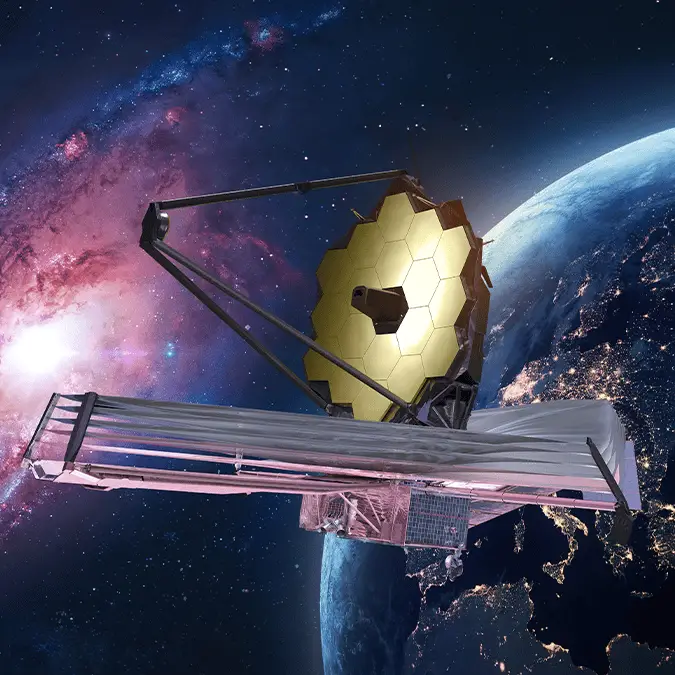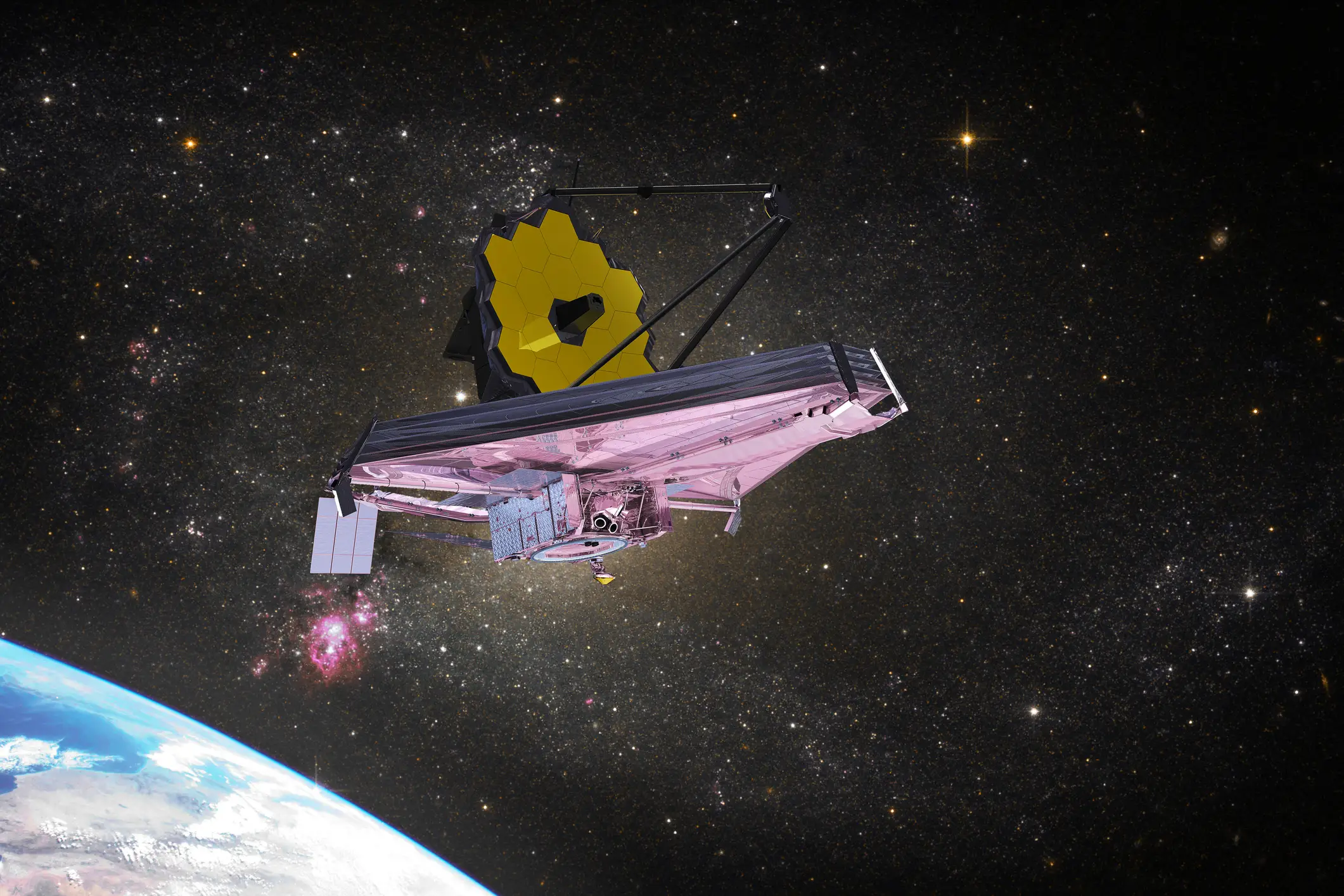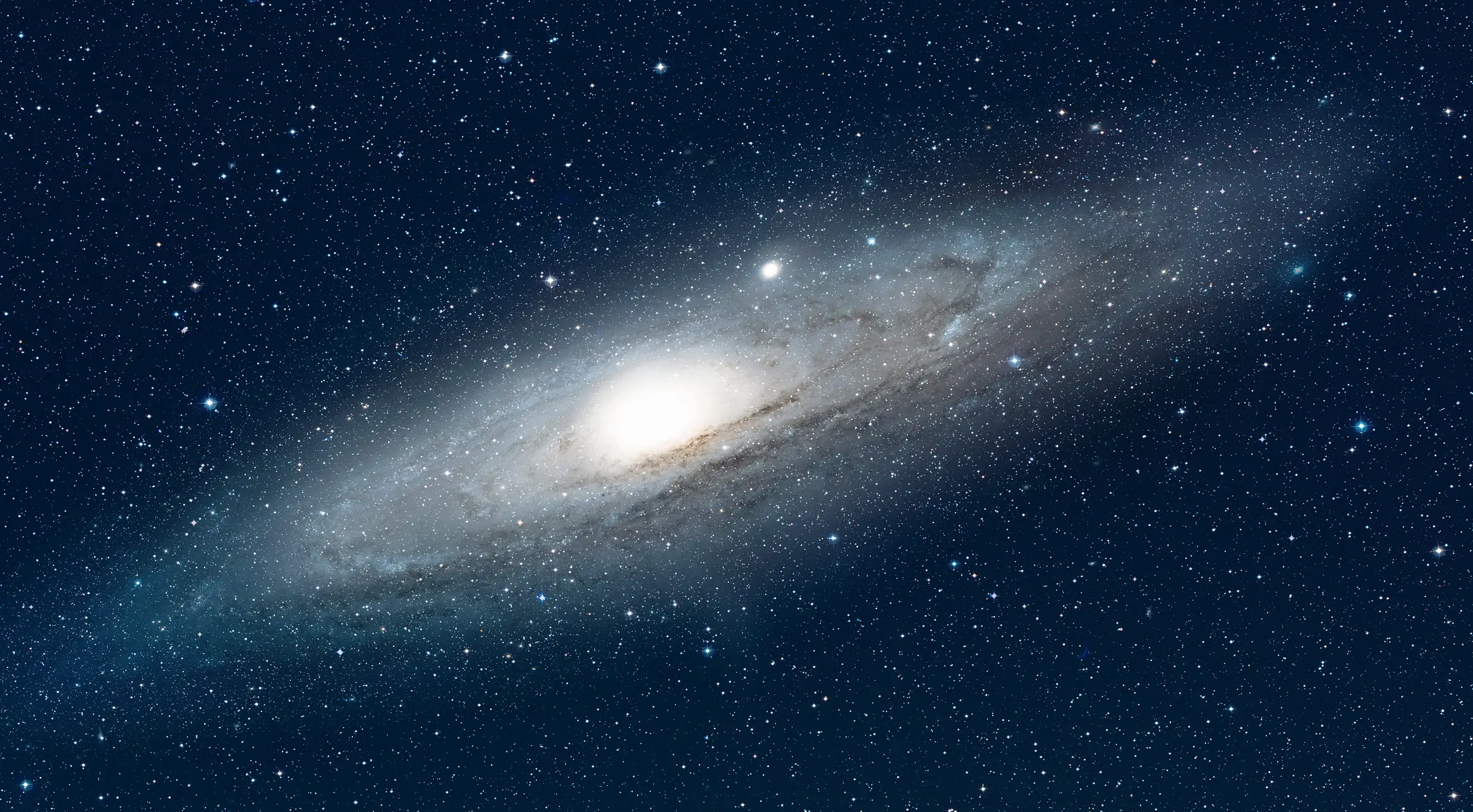
Scientists have spotted a massive spiral galaxy that shouldn't exist.
Using the James Webb Space Telescope, a team of astronomers peered back in time to observe what they've now dubbed the Big Wheel. Now, the two-billion-year-old galaxy seems to defy everything we know about the early universe.
At that point in cosmic history, galaxies weren’t supposed to be this large.
But the Big Wheel spans an astonishing 98,000 light-years across - roughly the same size as our Milky Way - which suggests that it should have been much older.
Advert
Current scientific models suggest that galaxies take much longer to reach this kind of size.
"You have to remember that the Milky Way has had another 10 billion years or so to grow than the Big Wheel," said the study co-author Themiya Nanayakkara, an astronomer at Swinburne University of Technology in Australia.

That means the Big Wheel is the largest two-billion-year-old galaxy ever discovered at this stage of the universe’s evolution.
So, how did it grow so fast so quick?
One theory suggests that the Big Wheel didn’t just grow slowly over time but rather formed through a series of rapid galaxy mergers.
"Finding one of these galaxies is not a problem for cosmological theories, because one could be an outlier, but if we keep finding more, then I think we may have to say 'Okay, our models might need some refining,'' added Nanayakkara.
The theory proposes that multiple galaxies collided and merged in quick succession to form one large spiral galaxy which may have been made possible by the Big Wheel's unusually dense surroundings, Nanayakkara described.
Here, galaxies are 10 times closer together than in other parts of the universe.

"This dense environment likely provided ideal conditions for the galaxy to grow quickly. It probably experienced mergers that were gentle enough to let the galaxy maintain its spiral disk shape," he explained.
Additionally, gas flowing into the galaxy 'must have aligned well with its rotation, allowing the disk to grow quickly without being disrupted,' said Nanayakkara adding that it was a 'perfect combination.'
The scientist and his colleagues published their findings in the journal Nature Astronomy, describing the event as a 'less than two percent change of discovering.'
This finding hints that the early universe may have been far more intricate than scientists ever imagined. Now, researchers are setting out to track down more unexpectedly massive galaxies to understand just how rare these cosmic giants truly are.